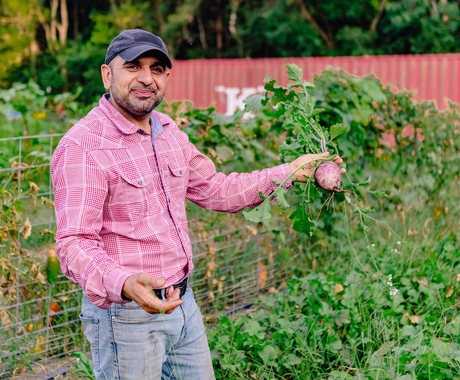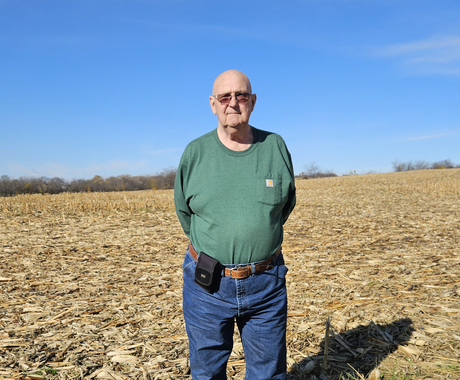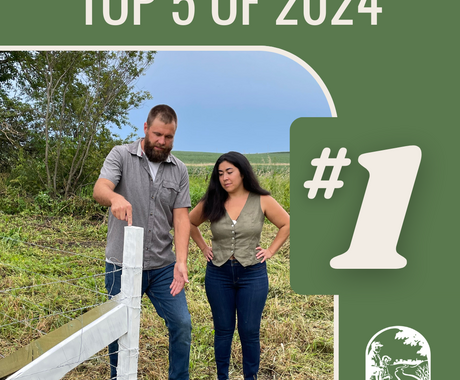Justin Doerr left the Army after serving overseas and knew he wanted to farm for his civilian career. He is big on planning, so he attended farm tours and webinars across three states to prepare for launching his farm business. He eased back into sheep production, using facilities his parents had vacated while Justin was in the service. Since his youth was spent following his father's direction on farm tasks rather than making his own farm decisions, Justin wanted to share the risk in his startup year of crop production. He enlisted a friend as a partner and they rented 63 acres from Justin's father near Plainview, Neb.
Now Justin farms those acres himself with equipment rented from his father, grandfather and neighbors. Yields have increased each year as he has gained experience, and prudent saving has let him be nearly clear of annual operating loans. He and his wife, Brendee, also earmark savings in preparation for buying their own equipment. When the Center for Rural Affairs Individual Development Account (IDA) program came along, which matched $500 of their savings with another $500, they saw a good deal that fit with their plans for saving money and a tool to grow their business.
"I see this program as a great way to help steer our operation in the correct direction and to help us grow as individuals,” says Justin.
The IDA program coincided with Justin's plans to transition to certified organic crops. That would eventually yield twice the price for each bushel of grain. As he built a business plan, a requirement for the IDA program, Justin fit the organic requirements into the plan. He would have to be more careful with equipment and storage, both rented from other farmers, to segregate his organic harvest from conventional crops that might contaminate his crops. The business plan was new for Justin, but it tied together budgets, the IDA savings, his plans to eventually own more equipment, and his certification needs.
Justin and Brendee completed the IDA savings program in three months with $1,000 in total savings. When a used combine came on the market for $5,000, their planning helped them realize it now fit their budget.
"I wouldn't have looked twice at this combine before doing the business planning," said Justin. "The process of the written plan and the financial analysis let me identify how the opportunity fit my goals."
Justin has more plans: he's looking ahead to doubling his crop acres and gaining organic certification. He sees more stable prices with organics as well as diversified income from the required three-crop rotation.
While still a young farmer, Justin is continuing the service ethic that took him to the military. He took time to travel to Washington, D.C., with the Center to testify about credit needs of beginning farmers. Back at home, he's helping two other young farmers start sheep operations. They'll not only avoid costly mistakes, soon they can all get better prices with larger loads of animals to sell.
That's one more opportunity that fits the plan.
Pictured: Justin testifying in Washington, D.C., about credit needs of beginning farmers. He traveled to Washington with the Center for Rural Affairs.





